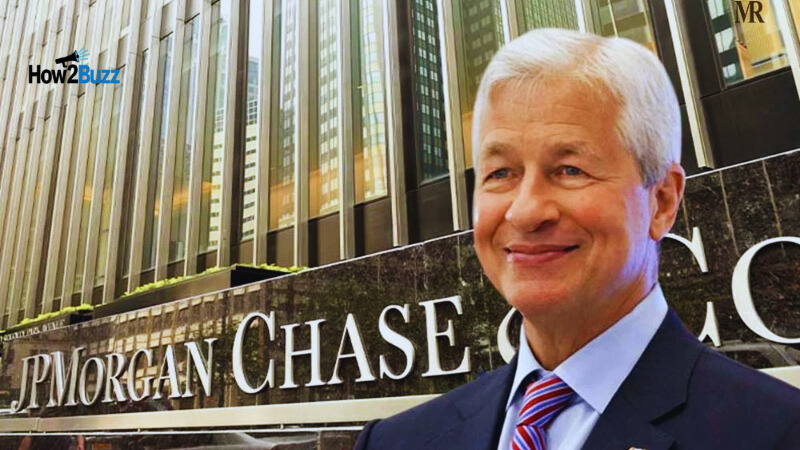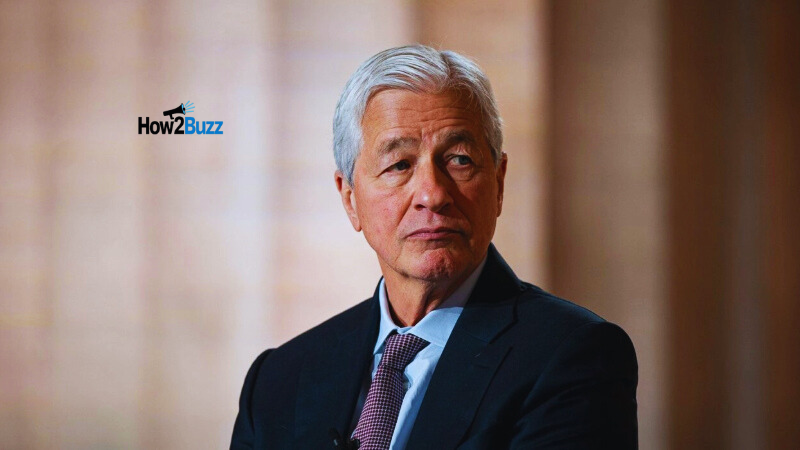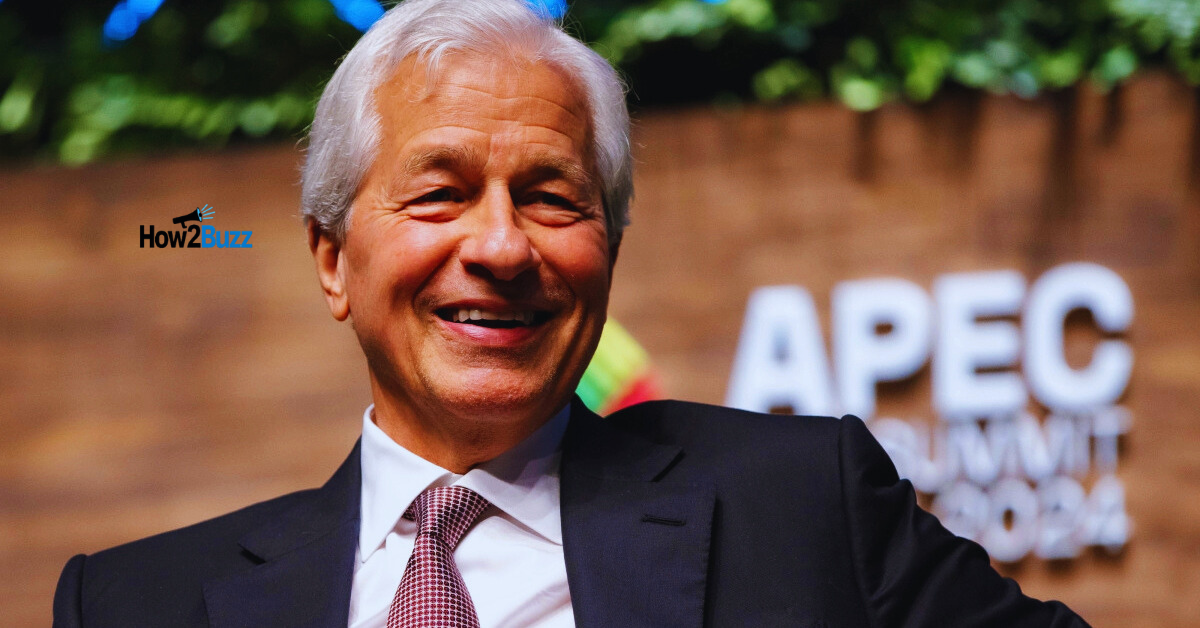When it comes to the world of high finance, few names carry as much weight as Jamie Dimon Net Worth. As the longtime CEO and Chairman of JPMorgan Chase, Dimon is often recognized as one of the most influential figures on Wall Street. But beyond his boardroom savvy and leadership acumen lies a topic that intrigues both casual observers and serious investors alike: Jamie Dimon’s net worth. Understanding how Dimon built his wealth gives us a peek into the inner workings of corporate banking, executive compensation, and long-term wealth strategies in modern capitalism.
Unlike many of his billionaire peers in Silicon Valley or entertainment, Dimon’s fortune stems primarily from his decades-long leadership in the financial sector. It’s not the flashy route, but it has been steady, strategic, and incredibly lucrative. Let’s break down how Jamie Dimon reached the financial elite, what his wealth tells us about banking, and what it might mean for the future of Wall Street.
Jamie Dimon Net Worth and His Rise Through the Financial World
Jamie Dimon net worth isn’t just a result of a single smart business decision or startup windfall. Instead, it reflects decades of strategic moves, leadership under pressure, and deep roots in finance. His career began at American Express, where he worked under Sandy Weill, a major player in the financial industry. This mentorship was pivotal, giving Dimon firsthand experience in managing large financial organizations.
Later, Dimon and Weill built Citigroup through a series of aggressive mergers and acquisitions. Although Dimon was eventually pushed out of Citigroup, he didn’t stay down for long. His next major move came when he took over Bank One and soon merged it with JPMorgan Chase, solidifying his place as a key figure in American banking. Each of these roles came with compensation packages that steadily built his personal fortune.
Dimon’s rise wasn’t without challenges. He steered JPMorgan through the 2008 financial crisis with minimal damage compared to other banks, enhancing his reputation and solidifying his control over the company. His leadership style, a mix of conservative financial practices and bold business decisions, played a big role in building the kind of corporate stability that reassures investors—and fattens executive paychecks.
Breaking Down Jamie Dimon Net Worth: What Makes Up His Fortune?
So what exactly makes up Jamie Dimon net worth? For starters, his annual compensation from JPMorgan Chase is a major component. His salary, bonuses, stock options, and other performance-based rewards can exceed tens of millions of dollars annually. That’s not just money in the bank; it’s money in stocks, retirement plans, and other appreciating assets.
A significant portion of his wealth is tied to JPMorgan stock. As CEO and Chairman, Dimon has accumulated millions of shares in the bank over the years. These shares not only increase in value as the bank performs well but also pay dividends, providing Dimon with a steady stream of income. He has also occasionally made headlines by purchasing additional shares with his own money, a move that often signals confidence to investors.
But Dimon’s wealth isn’t all about his JPMorgan holdings. He has also invested in real estate and diversified his assets over time. He owns multiple properties, including high-value homes in New York and other prime locations. These investments are classic moves for high-net-worth individuals looking to maintain and grow their wealth over time.

How Jamie Dimon Net Worth Reflects Modern Executive Compensation Trends
Jamie Dimon’s financial standing is a textbook example of how top executives in the corporate world are compensated today. His net worth showcases the increasing importance of equity-based compensation over base salary. In other words, Dimon’s paycheck is just the beginning—the real money comes in the form of stock grants, bonuses, and long-term incentives.
This trend toward equity-focused pay structures ties executives’ financial fortunes to the long-term performance of the companies they lead. It also aligns their interests with shareholders, at least in theory. When JPMorgan does well, so does Dimon. This model can reward visionary leaders who deliver consistent results, which is exactly what has happened in Dimon’s case.
However, it’s also sparked debates about income inequality and executive pay. Critics argue that such high compensation levels, even for exceptional leaders like Dimon, are symptomatic of a larger problem in corporate America. Still, others defend his earnings as a reflection of value created under his stewardship. Regardless of where you stand, there’s no denying that Jamie Dimon’s net worth is a direct reflection of these compensation norms.
The Role of Smart Investing in Building Jamie Dimon’s Wealth
Although most of Jamie Dimon Net Worth wealth is linked to his role at JPMorgan, he hasn’t neglected personal investing. Like any seasoned financier, Dimon understands the power of compounding, diversification, and timing. Reports indicate that he holds a broad portfolio beyond his JPMorgan stake, including real estate, municipal bonds, and other low-risk assets that offer stability.
Dimon is not known for high-risk investing; instead, his approach is methodical and conservative. That might sound boring to the average retail investor, but it’s a big part of why his fortune continues to grow. Unlike tech entrepreneurs who often gamble on the next big innovation, Dimon focuses on long-term growth and capital preservation.
His private investments are carefully curated, typically managed by top advisors. He’s also known to reinvest a portion of his earnings consistently. That kind of discipline, when combined with compound interest and smart timing, adds up significantly over the years. It’s a real-life example of “slow and steady wins the race.”
Leadership Style and Its Financial Impact
Dimon’s leadership style has had a direct impact on his wealth. He’s known for being highly involved, deeply informed, and willing to take unpopular positions when necessary. This has earned him both respect and criticism, but more importantly, it’s helped JPMorgan outperform competitors, especially during crises.
A steady hand in turbulent times translates to financial stability, both for the company and for Dimon himself. During the 2008 crisis, while many financial institutions floundered, JPMorgan emerged relatively unscathed. This boosted investor confidence and share value, which in turn increased Dimon’s own stake in the company.
His ability to navigate complexity while staying grounded in fundamentals has made him one of the most respected CEOs in America. That reputation doesn’t just help the bank—it boosts Dimon’s personal brand, which can lead to other lucrative opportunities, from speaking engagements to board positions.

Jamie Dimon’s Philanthropy and Wealth Ethics
It’s worth noting that Jamie Dimon has also made moves in philanthropy. While not as high-profile as some billionaires in tech or entertainment, Dimon has donated to causes ranging from education to community development. His philanthropic style tends to mirror his business philosophy: measured, strategic, and long-term.
He often channels donations through the JPMorgan Chase Foundation, which focuses on workforce development, financial literacy, and small business growth in underserved communities. These efforts are more than PR moves; they reflect a broader vision of responsible capitalism. It’s a way for Dimon to put his wealth to work in a socially impactful manner.
This ethical approach to wealth isn’t just good for society; it also enhances Dimon’s legacy. By leveraging his net worth for good, he positions himself as more than just a banker—he becomes a leader committed to broader societal progress.
What Jamie Dimon’s Wealth Means for the Future of Banking
Jamie Dimon Net Worth financial success isn’t just a personal story; it’s a case study for the future of leadership in banking. His net worth highlights the kind of compensation and wealth-building that’s possible in modern finance, especially for those who play the long game and take calculated risks.
For young professionals looking to break into finance, Dimon’s journey offers several lessons: the value of mentorship, the importance of strategic vision, and the benefits of sticking to core principles even when the industry shifts. His wealth is not just a number—it’s a reflection of decades of dedication to a single sector.
His success also underscores the growing complexity of executive roles in large financial institutions. Future leaders will need to balance investor expectations, regulatory compliance, social responsibility, and innovation—all while keeping an eye on long-term value creation. Dimon has set a high bar, and his net worth is just one indicator of how well he’s cleared it.
Conclusion
Jamie Dimon Net Worth is far more than a headline figure. It’s a story of resilience, strategic growth, and disciplined financial management. From his early days alongside Sandy Weill to his dominant reign at JPMorgan Chase, Dimon has proven that you don’t need to launch a tech startup or inherit a fortune to build extraordinary wealth.
His approach to investing, leadership, and even philanthropy shows that long-term thinking and consistency can still pay off big. In a world obsessed with quick wins, Dimon stands as a reminder that lasting success takes time, patience, and vision. Whether you’re an aspiring financier or just curious about how money works at the top, Jamie Dimon’s journey is a masterclass worth studying.
FAQs
What is Jamie Dimon’s current estimated net worth?
Jamie Dimon’s net worth is estimated to be over $2 billion, primarily due to his stock holdings in JPMorgan Chase and other long-term investments.
How did Jamie Dimon make his money?
Dimon built his fortune through decades of leadership in the banking industry, most notably as CEO and Chairman of JPMorgan Chase. His compensation packages include salaries, bonuses, and extensive stock options.
Is Jamie Dimon considered one of the highest-paid CEOs?
Yes, he consistently ranks among the highest-paid CEOs in the United States, thanks to a combination of base salary, performance-based bonuses, and equity awards.
Does Jamie Dimon invest outside of JPMorgan?
While much of his wealth is tied to JPMorgan stock, Dimon has also invested in real estate and other financial instruments to diversify his portfolio.
Is Jamie Dimon involved in philanthropy?
Yes, he is active in philanthropy, particularly through the JPMorgan Chase Foundation, which supports education, small business, and financial literacy initiatives.



